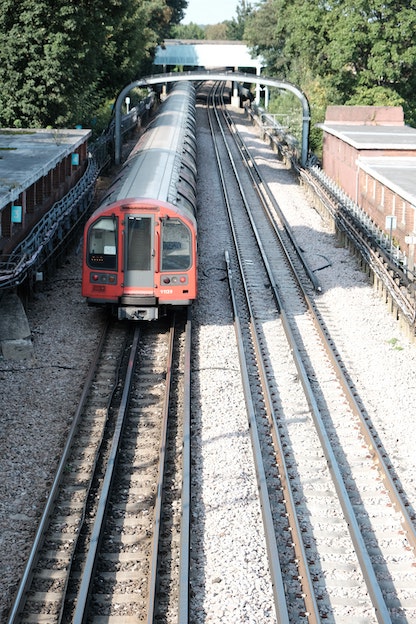RAIB Investigation of Train 6A11 & Fractured Rails

Why did a car on train 6A11 with flat wheels fracture rails, as investigated by RAIB (Rail Accident Investigation Branch)?
A wagon, part of train 6A11, with severe wheel flats on one of its wheelsets fractured two rails within a mile of each other in the UK between Pencoed and Llanharan. The wagon was traveling from Robeston oil terminal, Milford Haven, to Theale oil terminal, near Reading, on the night of March 5, 2021.
The wheel flats on train 6A11 occurred because a wheelset had stopped rotating (locked) while the train was moving during the journey.
The investigation found that the wheelset had probably locked during braking in an area of very low railhead adhesion, when the train was traveling along the recently reopened Swansea District line. The rails on that line were rusty as it had not been used for several months. The environmental conditions were such that the rails were also wet, and it was the combination of rust and moisture which created the very low adhesion experienced by the train.
Network Rail had not taken any specific precautions to ensure that an adequate level of adhesion was available when reopening the line. This arose because Network Rail’s focus when managing low adhesion was on the autumnal leaf fall season and it had not acted on the advice provided by a cross industry working group on the adhesion- related precautions to take when reopening an unused line.
Ferryside investigation
In light of the findings of this report, RAIB considers that very low adhesion may be an alternative potential causal factor of relevance to the Ferryside accident (RAIB report 17/2018). An addendum has been added to the Ferryside report discussing this potential causal factor. This update does not alter the safety recommendations made in the earlier version of the report.
Recommendations based on train 6A11 incident
RAIB has made one recommendation to Network Rail to review its processes in light of the existing industry guidance to manage all occasions outside the leaf fall season which could result in very low levels of wheel/rail adhesion.
RAIB has also identified one learning point for signalers to remember that, in accordance with the Rule Book, they must arrange for a train to be stopped and examined if they become aware of an unusual noise coming from a wagon.
Content source/credit: Rail Accident Investigation Branch (RAIB), “Report 03/2023: Track damage between Pencoed and Llanharan,” published February 22, 2023. Contains public sector information licensed under the Open Government Licence v3.0.
Photo source/credit: Photo by Pascal Orsini on Unsplash.
Sign up today for a Virtual 3-Day TapRooT® Root Cause Analysis Training Course . . .
. . . offered in these time zones — COT (Colombia), EST (NYC), PST (Seattle), CET (Paris), GST (Dubai), AWST (Perth). Other time zones may be offered as future virtual courses become available.
TapRooT®’s experts in incident facilitation, root cause analysis, and corrective actions can help your organization solve critical internal and external problems. When your company is in a situation that requires outside help, TapRooT®’s Root Cause Analysis experts can partner with your employees to identify and solve problems.
TapRoot® is global—and local—to meet your needs. If you would like us to teach a course at your workplace, please reach out here to discuss what we can do for you, or call us at 865.539.2139. Need other times or locations that you don’t see on today’s list? Please see our full selection of courses.



